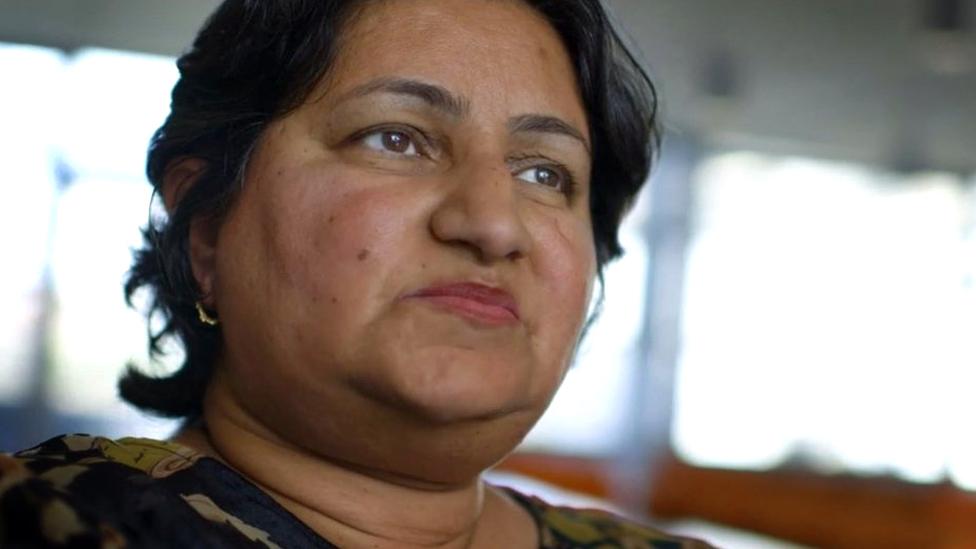'People are blamed if they have cancer'
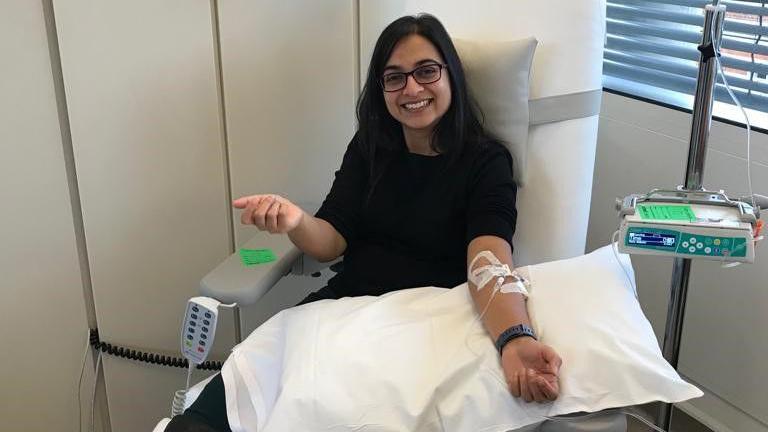
Meera Shah said there was "lot of fear around hearing about a cancer diagnosis"
- Published
There is no translation of the word cancer in many south Asian languages.
That's according to Buckinghamshire GP Dr Nighat Arif who said it had led to "a lack of understanding" of the disease which was already not discussed in the wider community by people of Asian heritage.
"It’s seen as a taboo and people are blamed if they have cancer. It’s seen as it’s their fault or you’re not a good person," she said.
The BBC has spoken to women who wanted to share their experience of other people's reactions to their cancer diagnoses, with a view to breaking that taboo.
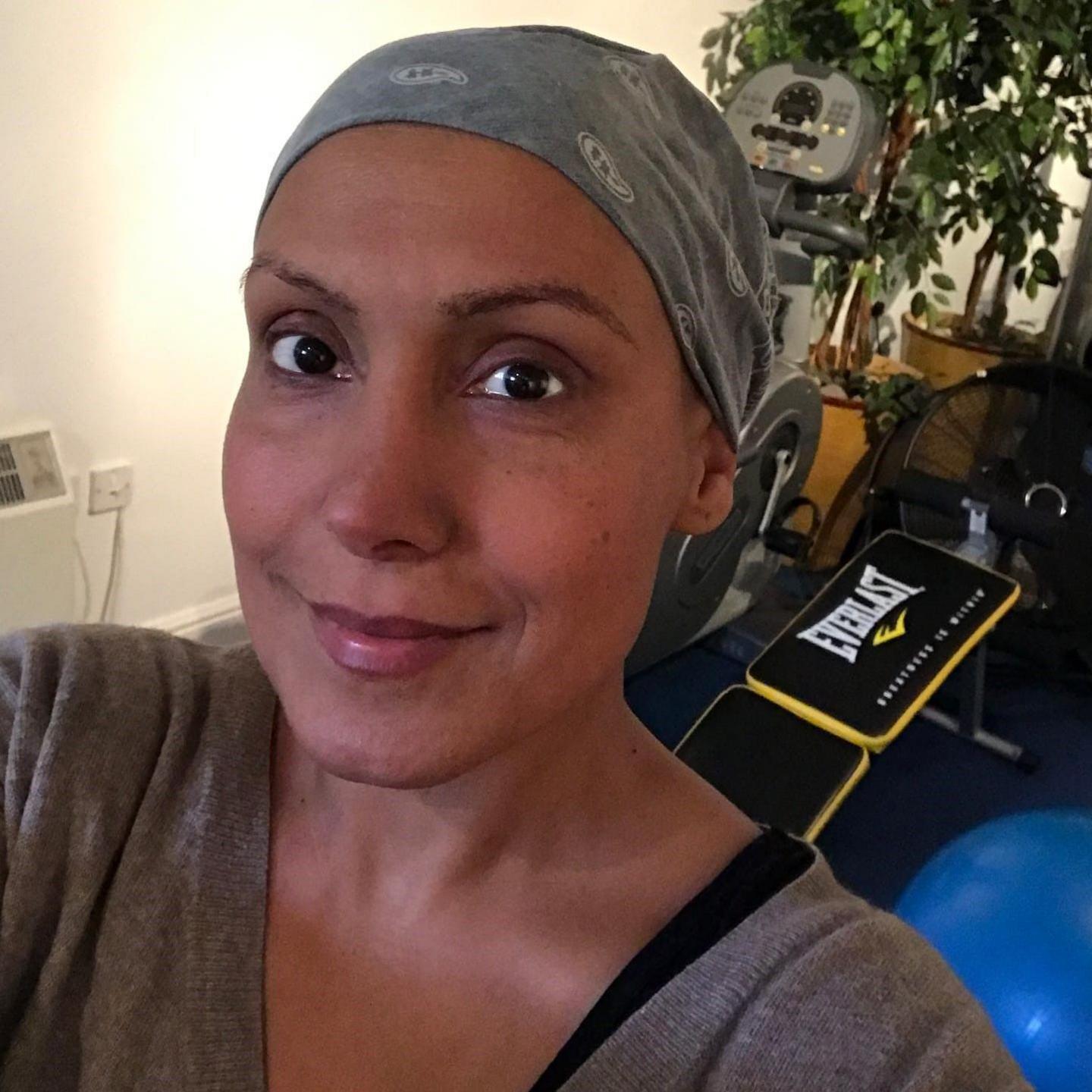
Veronica Mehta said there were higher rates of cancer in the Asian community because it was not discussed
Veronica Mehta, from Buckinghamshire was diagnosed with breast cancer in 2016 while she was pregnant with her third child.
To avoid gossip she kept that diagnosis secret from her community.
"Someone said 'it’s Karma - you must have done something wrong in your life' - that’s why I have breast cancer," she said.
The 42-year-old had a metal port inserted into her breast after a mastectomy and this caused an issue when she was travelling in India.
"I had to tell the security lady at the airport about this, she leapt back as if it was contagious. It was shocking to see this and left me deeply hurt," she said.
"There is a lack of education and there’s a lot of suppression; it’s seen as a taboo and we aren’t allowed to talk about it.
"The reason why there are higher rates of cancer is because we as a community don't go for checks in time and ignore symptoms."
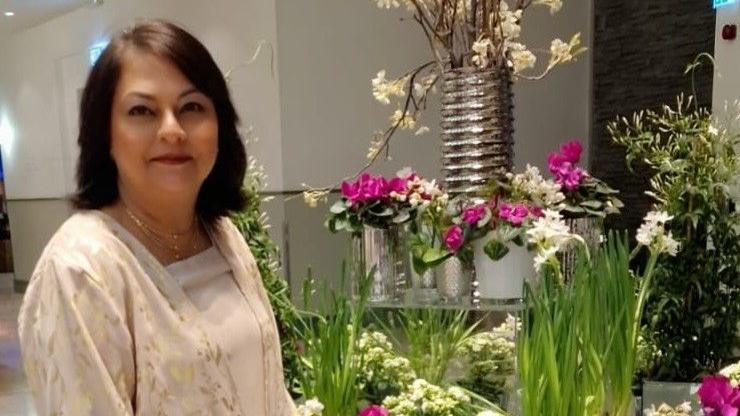
Sbba Siddique was called "shameless" after sharing her story online
Sbba Siddique was diagnosed with ovarian cancer in March 2022.
“I was told not to mention where my cancer was as it was a gyne [gynecologial] cancer and talking about anything below the waist is taboo," she said.
Ms Siddique, a co-founder of Asian Star Radio, shared her story on social media where some called her "shameless" and told her "these things should be kept personal".
She explained: "I am sharing my story as I want to increase the visibility of South Asian faces and voices.
"Through treatment I saw no-one like me, in the literature I saw no-one like me... so I’m keen to change this."
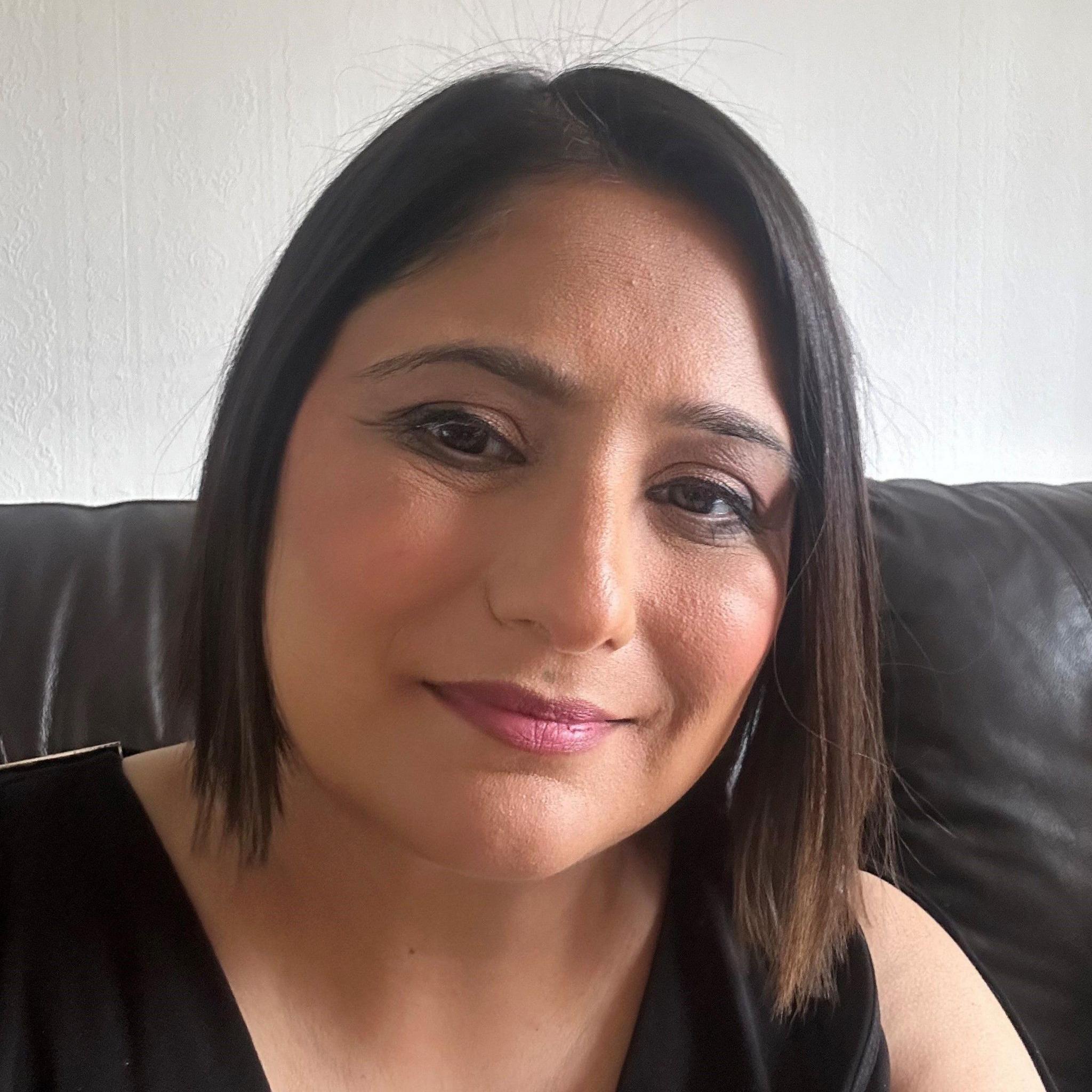
Some of Preeti Kallha's family avoided her "like the plague"
Preeti Kallha, 42, is a cancer coach living in London, but originally from Bedfordshire.
She was diagnosed with multifocal breast cancer in September 2021.
She said: "There are two types of people in the Asian community when dealing with cancer - those that assume it’s game over and act as though you’re already gone, or you get those that avoid the C-word altogether and avoid you too.
"I had extended family that would avoid me like the plague and didn’t reach out to wish me well at all.
"This hurt and bothered me for a long while, but then I realised that it was due to a lack of understanding about cancer.
"An extended family member had told me I am lucky to have supportive [immediate] family and in-laws as if I had been diagnosed in India years ago I would have been locked in a room and separated from everyone. No-one would have been allowed to talk to me and wouldn’t have shared the same utensils as me.”
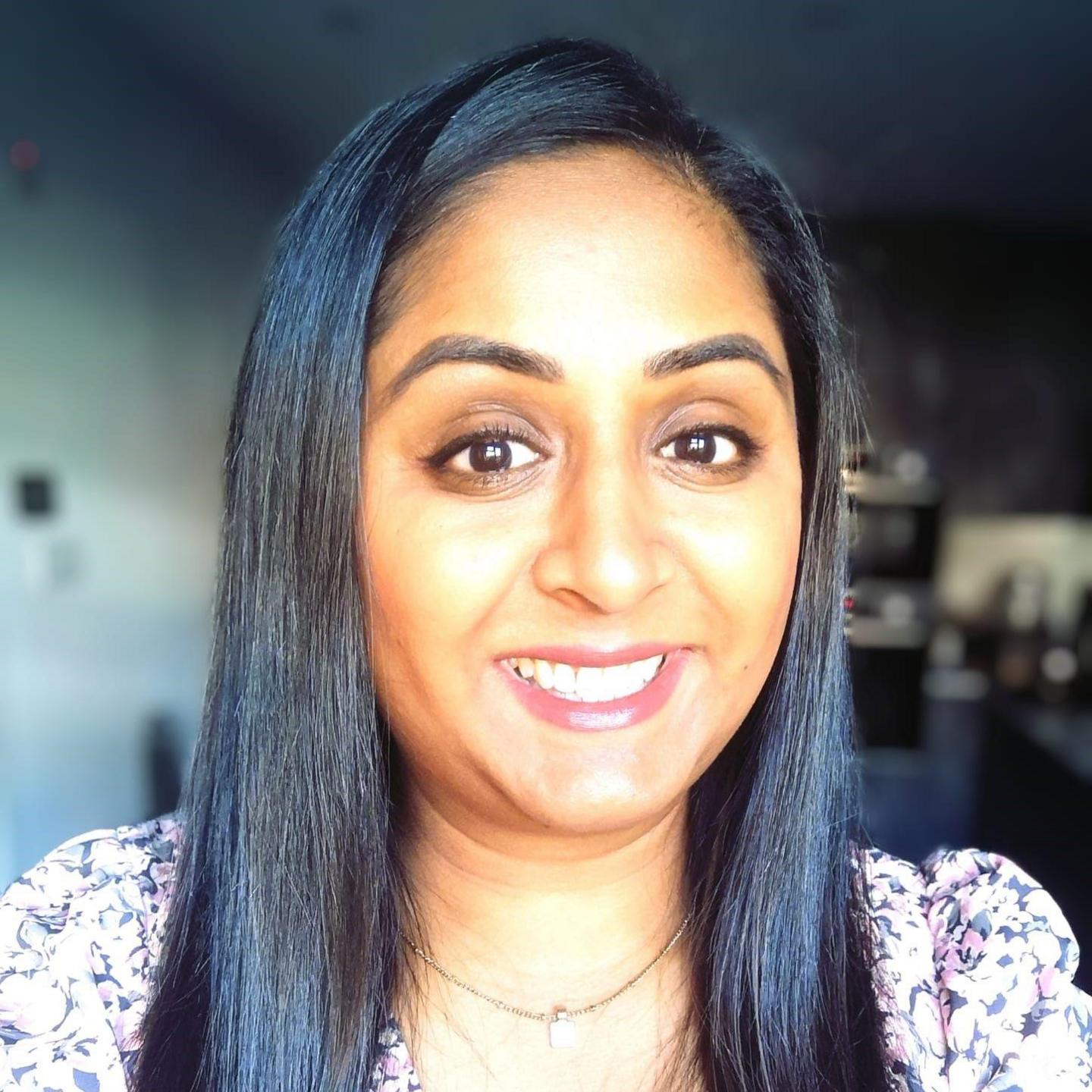
Bhavika Patel was told by a parent to keep her diagnosis a secret
Bhavika Patel, from Bushey in Hertfordshire, was diagnosed with breast cancer last year.
She was surprised when a parent told her not to tell anybody else about the diagnosis.
The 41-year-old said: "I wanted to tell people because then I’ll be supported, but the main thing was it was such a shock at a young age; if it can happen to me it can happen to anyone.
"The stigma attached is that a lot of people think it’s hereditary. You must have got it as it’s in your genes, or things like it must be because of your diet, or you’re a vegetarian; they come up with all sorts of things."
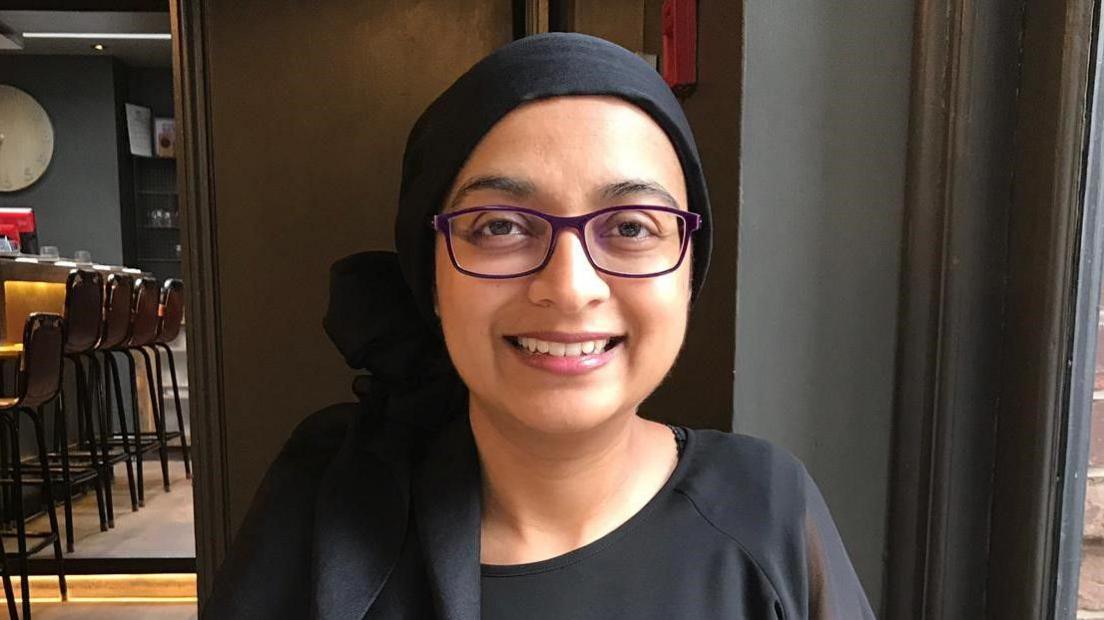
Meera Shah thought it was important to share her diagnosis with others
Meera Shah, from Hertfordshire, was diagnosed with a solitary bone plasmacytoma in 2011.
It progressed to myeloma in 2018 and the new mum felt it was important to share her diagnosis with others.
Although she felt there was no taboo around her situation, she admitted that there was "a lot of fear around hearing about a cancer diagnosis, I know that's how I felt initially, and still do from time to time".
Priyanka Pandya-Bhatt, from Aylesbury in Buckinghamshire, was diagnosed with triple negative breast cancer at the age of 36.
During her chemotherapy, she started writing a children’s book to encourage families to be open and talk about cancer in a child-friendly way.
The 38-year-old said: "Some family members were concerned about us not telling the wider community straight away. They didn't understand that we needed time as a family to get to grips with this life-changing news."
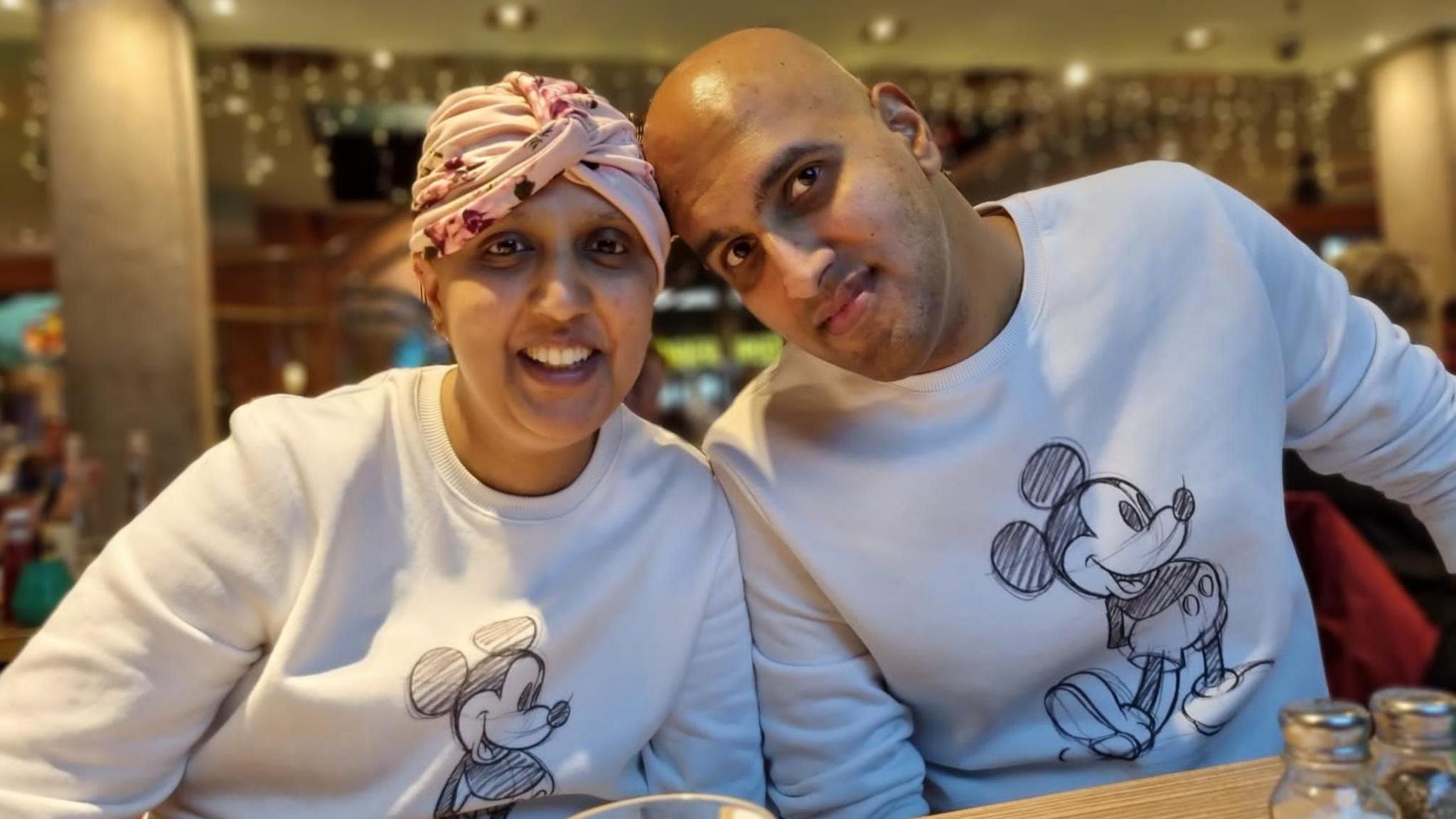
Priyanka Pandya-Bhatt wrote a children’s book to encourage families to talk about cancer
Claire Taylor, chief nursing officer at Macmillan Cancer Support, said people from South Asian backgrounds can feel unable to talk about cancer diagnosis because of religious or cultural beliefs.
"We know some people may not talk about it because of a perceived stigma about the disease, while others can find that talking about cancer within the community is considered shameful," she said.
"South Asian women can also be reluctant to discuss or present symptoms linked to stereotypically-defined ‘women’s health issues’, especially with male healthcare professionals, due to a fear of shame."
Dr Arif added: "The only way forward is to bring it out in the open and educate people so the myths are tackled and the right information is passed on.
"This is to help bring conversations like this to the forefront so people can talk openly about cancer without the stigma.”
Follow East of England news on Facebook, external, Instagram, external and X, external. Got a story? Email eastofenglandnews@bbc.co.uk, external or WhatsApp us on 0800 169 1830
Related topics
Related Internet Links
More on cancer in the Asian community
- Published26 September 2023
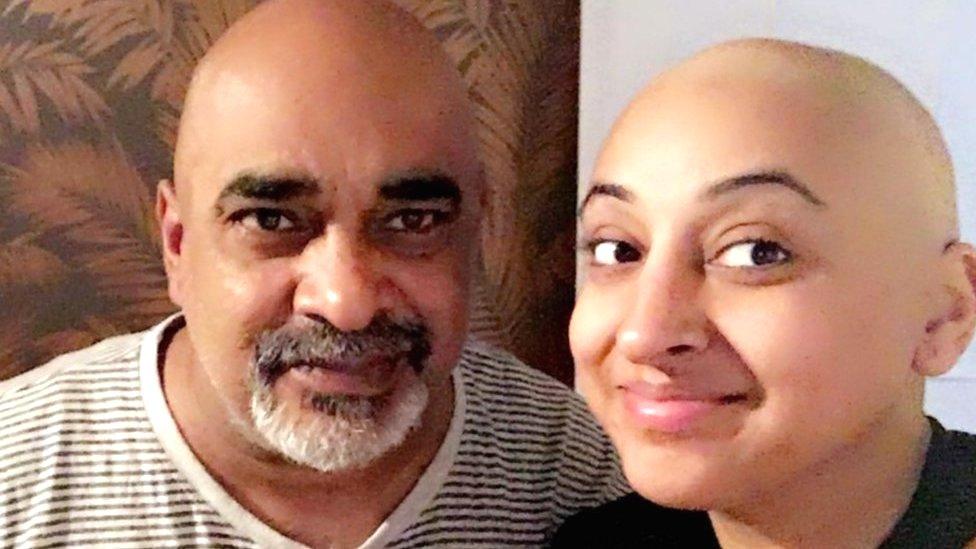
- Published8 August 2017
